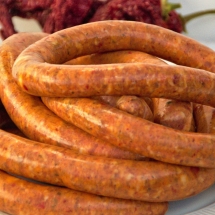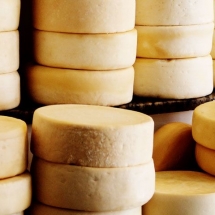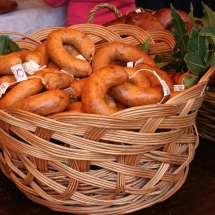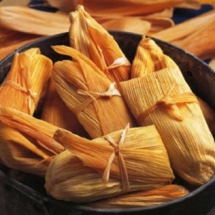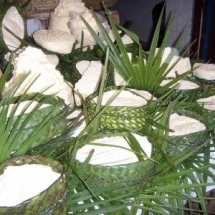Assuring the safety of traditional foods: a scientific contribution to protecting our cultural heritage
Organisers: Anderson Sant’Ana1, Marciane Magnani2, Fouad Achemchem3
Speakers: Anderson Sant’Ana1, Marciane Magnani2, Fouad Achemchem3, Antonio Valero4, Vasco Cadavez5, Ursula Gonzales-Barron5
1University of Campinas, Brazil
2Federal University of Paraiba, Brazil
3University Ibn Zohr, Morocco
4University of Cordoba, Spain
5Polytechnic Institute of Bragança, Portugal
Justification: The number of artisanal foods produced worldwide is well beyond measure. They constitute not only a vital part of many local economies, but also an important part of the local heritage to preserve and transmit. Problem-solving scientific research should be conducted to increase the ability of artisanal producers to prevent food safety incidences that cause loss of consumer’s trust, loss of business image and overall economic losses. The production of artisan foods of traditional recipes but of sustainable quality elaboration will have a great impact particularly on less privileged regions of the world. Scientific research can support artisanal food producers to have access to new markets, and even differentiate their products. In turn, consumers’ expectations of artisanal foods that are organoleptically attractive and, at the same time, safe, (perceived as) healthy and convenient, will be met; therefore fostering an increase in the demand for these products. This round table will explain the role of traditional foods in society, and will provide highlights of current scientific research directed towards the valorisation and sustainability of artisanal foods through safety and quality assurance.
Presentations schedule:
Traditional foods as engines of cultural, economic and environmental sustainability (Tbc) [20 min]
Understanding microbial ecology and interactions in traditional fermented foods: the key aspects (Marciane Magnani) [8 min]
The use of autochthonous lactic acid bacteria for enhancing the safety of traditional foods: Perspectives and limitations (Fouad Achemchem) [8 min]
Traditional foods as the starting point of functional cultures: the importance of strain robustness (Anderson Sant’Ana) [8 min]
Coffee break
The ArtiSaneFood project: novel strategies to ensure the quality of traditional foods produced in the Mediterranean (Ursula Gonzales-Barron) [8 min]
Mathematical modelling as a tool for ensuring microbiological safety of traditional fermented foods (Vasco Cadavez) [8 min]
Decision-making tools for quality and safety management of traditional foods: the case of Spanish-style table olives (Antonio Valero) [8 min]
Questions and discussion [10 min]

